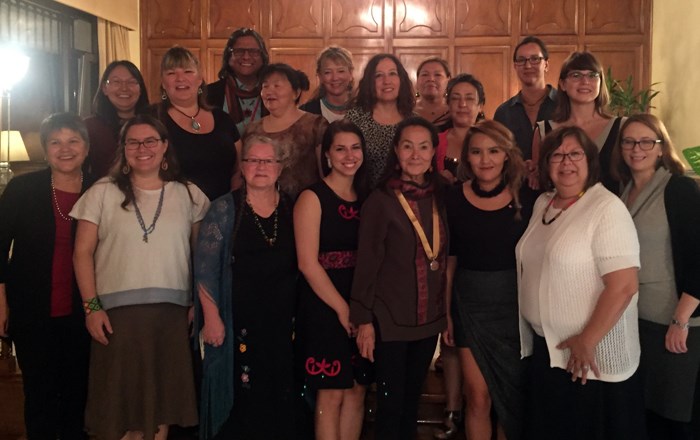The Continental Network of Indigenous Women of the Americas was held in mid-November in Guatemala City.
More than three hundred indigenous leaders from North, Central and South America gathered at what was the seventh such Conference. Among those attending were 17 Canadians including Judy Hughes of Yorkton who attended as a delegate for the Native Women’s Association of Canada.
The meeting celebrated twenty years of history for the Continental Network of Indigenous Women of the Americas, ECMIA, a network that includes more than 30 indigenous organizations from among 20 countries in the Americas.
Hughes said Canada holds a special prominence at the meeting.
“Canada is one of the major players. They see us as so far ahead,” she said.
That reputation expanded with the new federal government announcing it would launch an inquiry into murdered and missing aboriginal women.
“We know we are getting the inquiry,” said Hughes, adding women’s group will need to remain vigilant in watching how the inquiry plays out, as well as working to make sure any recommendations out of the inquiry are follow-up.
“We have to remain vigilant that there is implementations of any recommendation … that come out of the inquiry.”
Violence against indigenous women and children is not a uniquely Canadian issue. Hughes said it was a major area of discussion at the Conference.
“It was the highest priority,” she said. “Violence against indigenous women and children is very high.”
In that regard there are similarities to the issue in Canada, so there was full support at the Conference for the inquiry in this country.
“Having the inquiry happen is milestone,” said Hughes, which could be the start of a larger look at the issue for indigenous people around the world.
There are however more issues to deal with in many countries in terms of dealing with the murders and violence.
“There is involvement of police in some countries,” said Hughes.
When police are part of the violence there is the problem women and children face in finding a place to go for safety, offered Hughes.
In terms of the inquiry Hughes said they have a lot to deal with in Canada. It is estimated there are now nearly 1200 First Nations women and children known to have been murdered, or are missing.
Determining some of the causes is critical.
And those causes go beyond socio-economic factors, said Hughes.
“Racism and discrimination are a key element in the heightened violence that we see,” she said, adding racism “seems to be pretty pervasive” in Canada.
It’s to the point many people may not see themselves as racist, but that discrimination is nearer the surface than most want to admit, offered Hughes.
“Aboriginal people are seen as less than human,” she said.
Along the same lines Hughes said the Conference discussed human rights in great detail, in particular from the perspective of the 2007 release of the United Nations Declaration on the Rights of Indigenous Peoples.
“Once human rights are in, everything else should fall into place,” said Hughes.
But the UN document while being supported in principle has not been adopted or actively practiced in the countries attending the Conference.
Hughes said at least in Canada the Constitution entrenches First Nations rights and women’s equality.




